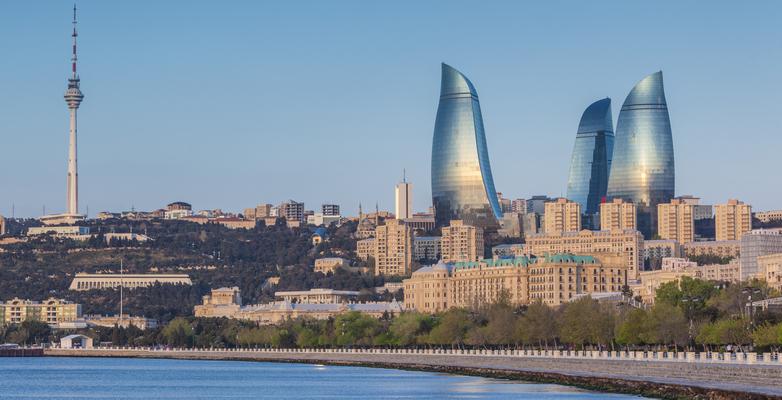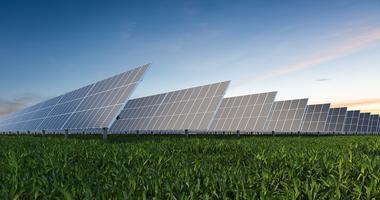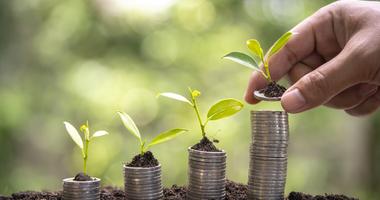
Looking Ahead to COP 29
With COP 29 fast approaching, we spoke with Climate Reality’s international field senior manager to learn more about why advocates across the globe should pay attention to what happens at the UN's annual climate conference.
6 min read
As we continue to shatter temperature records worldwide this year, international cooperation on climate is at the forefront of the fight to phase out fossil fuels, increase funding to address climate devastation and adaptation in emerging countries, and so much more.
After COP 28 – the United Nations’ climate summit – wrapped up last December, one thing became abundantly clear: The end of fossil fuels is coming. How quickly and fairly is up to us.
As we gear up for COP 29 this fall, we spoke with Meg Bearor, Climate Reality’s international field senior manager, to learn more about why advocates across the globe should pay attention to what happens at COP – and how Climate Reality is moving the needle on international cooperation.
Climate Reality: Could you tell us a little about yourself?
Meg Bearor: In my role, I’m really in the thick of it in terms of all of our international work. Before I came to Climate Reality, I was working in international development at the community level. Most of my career, I've been managing and running global programs in the women's and youth economic empowerment spaces, but through that work, because we were working at a community development level with a lot of subsistence agriculture and natural resource management, climate kept emerging as a theme. When I saw this job supporting our branches and getting to work at the intersection of program implementation and advocacy, I thought it was an incredible opportunity.
CR: Could you explain a little bit about what exactly COP is for those who don’t know? What were some of the major outcomes of the recent COP 28 in Dubai that people really should know about?
MB: COP is a big global meeting – that's really the way to describe it. It's an annual meeting that is put on by the United Nations’ climate branch (UNFCCC), and the goal is to come together and create global commitments to address the climate crisis. So, whether they're financial commitments from countries to contribute to loss and damage funds or commitments to reducing their emissions, COP is a space for them to come together and to jointly agree. It also includes a little bit of social pressure. You come together, you make these commitments together, and then you're expected to follow through.
In terms of COP 28, the headlines that came out of the meetings in Dubai included the formal establishment of the loss and damage fund, which is a pool of money that developed countries will contribute to so that climate-vulnerable nations will have access to resources for mitigation and adaptation efforts. Then, there was agreement on emissions reduction targets as well as language put into their formal agreements on fossil fuels’ role in the climate crisis. That was a pretty big deal.
Regardless of what happens during these meetings in terms of tangible results and technicalities, the commitment of countries every year to show up and to have these conversations is really important.
CR: What are the major issues that climate advocates — including organizations like Climate Reality — will be pressing for at COP 29 later this year in Azerbaijan?
MB: Now that we've put in language the agreement to transition away from fossil fuels, it's going to be about setting those targets and being more ambitious with our emission reduction targets as well as figuring out what the loss and damage fund actually looks like in practice. I think last year's COP set the stage for some exciting things to happen. Advocating for the creation of that fund to be done in as just a manner as possible is really important.
There are also continued conversations around engagement and inclusive engagement in the COP space. That's something that we as civil society organizations need to be advocating for, whether that's youth engagement or in the engagement of Indigenous peoples and frontline communities.
Last year, Climate Reality had a couple of specific campaign targets that we wanted to accomplish, one of those being phasing out fossil fuels. That still hasn't happened, and obviously, it's something of a work in progress. The upcoming COP is again in an oil producing-nation. That's one of the biggest parts of Azerbaijan's economy. So, making sure that this isn't a skewed process in the direction of a lot of these oil companies is going to be critical.
There's also the NDC process, which are the nationally determined contributions that each country creates on their own and presents at COP. Over the course of the next year, countries will be setting those targets for themselves and then making the commitment at COP to adhere to those, and so that's something important that's coming up that we need to work on influencing. All of our branches can influence that. You first influence these targets at the national level by working with your national government to see what they will commit to and then pressuring them to have more rigorous, high-level targets.
Finally, the agenda for COP 29 is set to focus on climate finance. This means setting new targets for nationally determined contributions. Previously, there were climate finance commitments set until 2025, meaning that this year governments will be making a new set of commitments for post-2025. This has implications for the agreements made at previous COPs. Take, for example, the loss and damage fund that was officially established at COP 28. It will take commitments set at COP 29 to build that fund, among other agreements such as scaling up ambitions for cutting emissions, adaption efforts, and more.
CR: What are some of the barriers to effecting change through the COP process?
MB: First and foremost, it's a lack of urgency and ambition from these nations who could change their goals and targets pretty quickly, which does lead to a lack of commitment. In that same vein, there's no enforcement measures on a global scale. There's no mechanism for that enforcement, so it’s on nations to hold each other accountable again through peer pressure as well as through pressure from citizens to enforce what they agree to.
These negotiations are really complex, and it’s a long process. It’s really two weeks of negotiations, and there aren't a lot of people who have the privilege to be able to commit two weeks to participate on the observer side to holding people accountable during the process. Additionally, many of the smaller nations who participate don't have the resources to send people to two weeks of meetings and to give up that people power. That's a privilege which leads to general power dynamics and inequities in who shows up and who has more leverage in that space.
Then, it’s definitely the special interest groups, which would be a lot of those fossil fuel companies in particular. It's shocking to see how they show up at these meetings as part of country parties as well as just their attempts to influence the process along the way.
Finally, the general person is pretty busy, and so I don't think that there's a lot of awareness on this which leads to less political will. If you don't understand the COP process or even really know it’s going on, you aren’t going to be aware that the people you vote into positions of power both at a state and national level have an influence on the COP process. You're not going to be able to demand that international cooperation on climate change be a priority. There needs to be more education and public awareness raising on the fact that people who go and negotiate at COP and create these targets for us are national representatives, and so you as an individual have power to influence who's participating in that conversation.
CR: What are some of the ways that we can address those barriers, including through our “Strengthening International Cooperation on Climate” global campaign?
MB: We can address the barriers that I spoke about through awareness raising. At Climate Reality, one way we can support our network is by providing additional educational opportunities. Last year, we did webinars on what the COP process is and how you can be involved.
Our branches also do awareness raising and education with their networks and their communities. Contextualizing for their processes for engagement with their national or regional governments because they are all going to be a little bit different. Climate Reality and other organizations are really good at calling out what is greenwashing in the international cooperation space with a lot of these fossil fuel lobbyists. For example, OECD – The Organisation for Economic Co-operation and Development – had a pavilion at COP, and we all thought, “Wait, you're not supposed to be here.” The first step is being aware that it's happening.
Some of our programs that our branches are carrying out this year are also focused on COP. One in particular is the Operación COP program, which is a youth negotiators program that trains young people to understand the negotiation process as well as work with governments to understand the importance of youth voices, and then embeds those newly-trained youth negotiators as part of the countries’ official parties at COP. So they can be in the room during those negotiations and participating in the process, and so it’s really about expanding meaningful engagement by focusing on who's there and who has a voice.
The Climate Reality Project Australia and the Pacific is spearheading a COP literacy program that will educate, motivate, and support individuals to encourage more ambitious climate policy commitments from governments and businesses in the region. It will also focus on ensuring that the pledges that have already been made – for example, the methane pledge – are met and advanced.
Similarly, this year, a lot of our branches are taking on specific campaigns to work on targeting their governments to influence the development of the NDCs for this round and push for more rigorous targets. So, that's another way that our branches are working in the international cooperation space.
While the intersection of international cooperation and climate can initially seem intimidating, incredible advocates like Meg can help us break down these complex issues. Learn more about the importance of climate finance ahead of this year’s COP 29 by joining us in New York City this April for the latest Climate Reality Leadership Corps training. Learn more about becoming a Climate Reality Leader and supporting a more sustainable tomorrow here.
To learn more about what happened at COP 28 in December and get a behind-the-scenes perspective, visit 24 Hours of Reality: On the Ground at COP 28.




